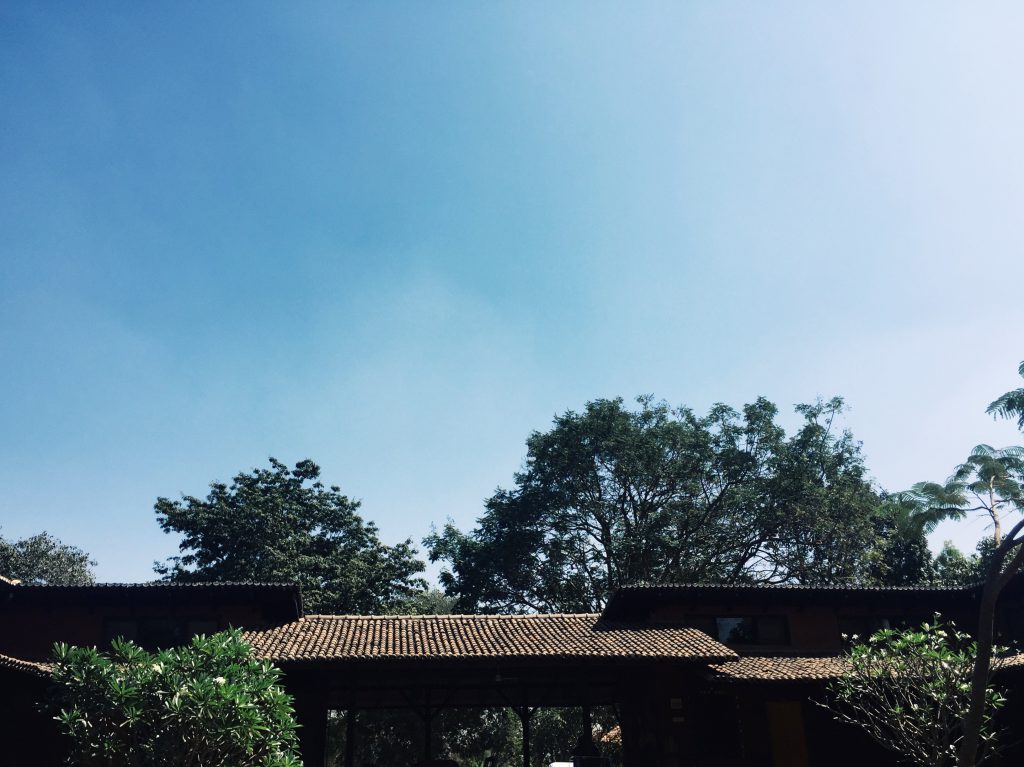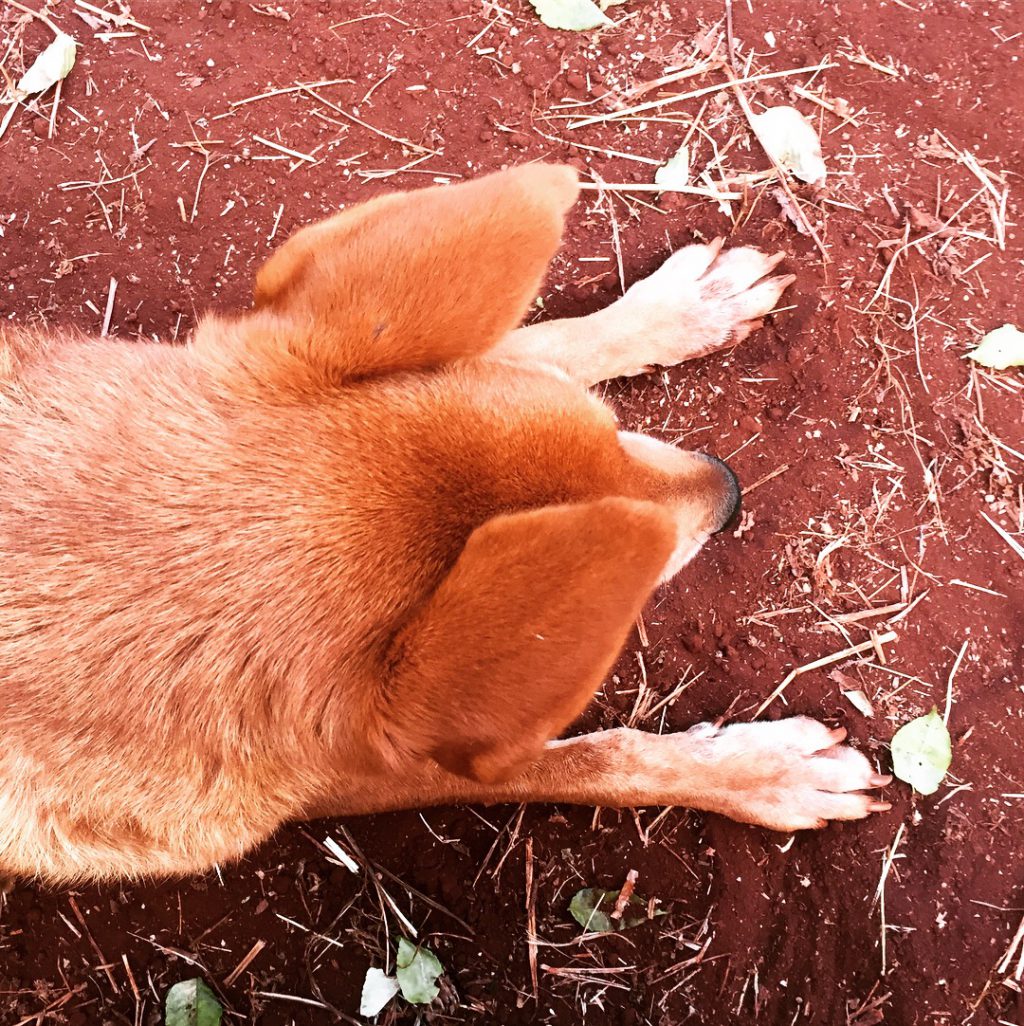At the time of writing this, I am sitting at a desk two hours outside of Bangalore city surrounded by red dirt, red dogs, red wine, and writers. I’m at a residency located in the Odissi Gurukul, Nrityagram, and the silence and slowness makes me feel a world and a half away from home. My tether to the real world, it seems, is the Apple Mail icon on my laptop’s dock panel, the little red notification bubble’s digits ever increasing. It is also my reminder that 2018 is well and truly in full swing.
We brought 2017 to a close with an edition I am incredibly proud of helping alongside the indefatigable Eleanor Jackson. ‘We’re Queer Here’ was honest, tender, at times painful. It should not have felt revolutionary, but it did. From each piece I learnt something, and to our contributors I am grateful. Our event by the same name, held at Art Play and supported by the City of Melbourne, was a celebration of our vast and varied community. I cannot think of a time where I’ve been in a room and felt so much acceptance and joy, relief and freedom.
I hope we are able to continue on into 2018 with such sentiment, and I am thrilled to enter the new year with three new members of the Peril Board and Editorial team by my side. But first, I would like to give my thanks and gratitude to Hoa Pham, Peril’s Founding Editor and now ex-Secretary, for paving the way for Peril, and being one of the first to bring Asian-Australian writing, arts, and culture into the mainstream Australian literary landscape.
That being said, it’s a pleasure and an honour to introduce Mirandi Riwoe as our new Prose Editor, Juhi Sonrexa as Secretary, and Shu-Ling Chua as new member of the Board:
Mirandi Riwoe: Prose Editor
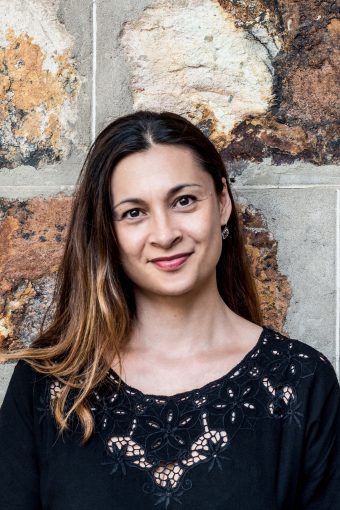 Tell us a bit about yourself, and your background as a professional and creative.
Tell us a bit about yourself, and your background as a professional and creative.
I am a Brisbane-based writer. My father, who is Chinese-Indonesian, came to Australia in the 1960s as part of the Colombo Plan in order to study at UQ. Although I initially set out to write crime fiction, I seem to have expanded into short story fiction and historical fiction too. As part of a Masters project I researched and wrote a crime novel set in Indonesia, while my PhD research, in part, covered the Asian population of London in the Victorian period and how my protagonists, ‘disguised’ Asians, might have traversed society. The second book in this series will be released in July. I use the name Mirandi Riwoe when writing literary fiction and M. J. Tjia when writing crime (which is my father’s Chinese name, pronounced ‘Chia’, spelt in the Dutch fashion, a relic of the colonial period).
What is it that motivates you to be involved in Asian-Australian arts and culture? Who inspires you in this area?
It is always so pleasing to read new work by Asian-Australian writers. However, there are still so many stories to tell—narratives that centre upon Asian people, the Asian-Australian experience or being an Asian woman in the world. Here in Queensland, I find Yen-Rong Wong’s tirelessness in both creating thoughtful pieces and championing Asian work inspiring. There are so many writers here in Australia who I admire and yearn to emulate, such as Melanie Cheng, Michelle Law, Michelle de Kretser, Alice Pung and Eileen Chong… and many, many more. Really, there are too many to list!
What are you looking forward to in 2018, in Peril and your personal endeavours?
I’m looking forward to continuing work on both my crime series and a historical novel set in the Gold Rush period in Queensland. Each of these works feature Asian and Eurasian characters. Also, of course, I can’t wait to read, read, read all the fabulous writing I receive as Peril’s prose editor.
Juhi Sonrexa: Secretary
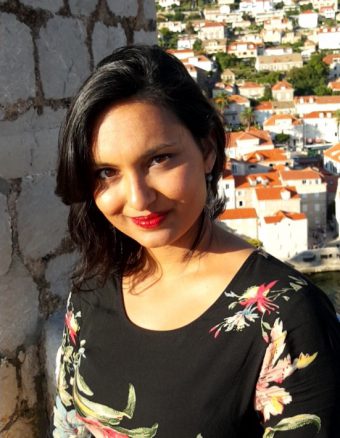
Tell us a bit about yourself, and your background as a professional and creative.
I began my career hoping the pen was truly mightier than the sword. While journalism is no longer my occupation, it perhaps will always be my vocation. My heroes/heroines are the investigative journalists who risk safety, reputation and ridicule to give the world as much Truth as it can handle. A paradigm shift is needed to assist the most marginalised meaningfully. For now, I commit myself to the humanitarian efforts of development organisations like Plan International Australia.
What is it that motivates you to be involved in Asian-Australian arts and culture? Who inspires you in this area?
Curious about whether one is lifted or diminished by tribalism, I have sought identity my whole life. Raised in a Hindu-Indian household in Arab nations, holding American citizenship and living a peripatetic life meant that I had no clear compass or prism through which to interpret the world around me. My environment was always shifting. However, one thing remained steady – my values. This is what your culture gives you. I seek encounters, relationships and serendipity that nurtures and validates a suspicion that all things are connected. Biologist Rupert Sheldrake posits that all beings possess a collective, instinctive memory through ‘morphic resonance’. “The morphic fields of social groups connect together members of the group even when they are many miles apart” he has said.
My tribe includes Asian-Australians, but encompasses all of humanity. To understand the latter, I seek the mind of the former. My prism now is compassion and mysticism, with the belief that one should believe in nothing, but trust that our experience of the world is a model of the world and should not be confused with the world itself. Yet this is what makes a search for identity and meaning so heartbreaking – perception is all too ephemeral.
What are you looking forward to in 2018, in Peril and your personal endeavours?
The privilege of learning from the creative minds of the Peril board, its writers and staff, and its readers is what I’m most looking forward to! On a personal note, I hope to achieve Australian citizenship this year and while I was once 14,454 kilometres from home, home is now and has been for a long time, right here.
Shu-Ling Chua: Board Member
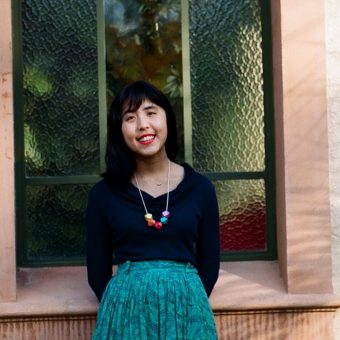 Tell us a bit about yourself, and your background as a professional and creative.
Tell us a bit about yourself, and your background as a professional and creative.
Apart from six months in Lund, Sweden and four and a half years in Canberra, I’ve lived my whole life in the western suburbs of Melbourne. My great-grandparents emigrated from Guangdong, China to Malaysia and my parents emigrated to Australia. I love pop music, dancing, Polaroids and vintage dresses and am a public servant by day and a writer by night.
I write memoir and criticism, focusing on sex, culture, growing up and femininity. I’ve also previously edited nonfiction for Voiceworks and produced events for Noted Writers Festival.
What is it that motivates you to be involved in Asian-Australian arts and culture? Who inspires you in this area?
Reading Unpolished Gem by Alice Pung in my late teens changed my life. It was the first time I saw part of my experiences reflected in a book, sparking the thought, ‘I could be a writer too’. Alice, Benjamin Law, Giselle Au-Nhien Nguyen, Zoya Patel and so many others inspire me.
Asian-Australian art—whether writing, performance or visual—helps me understand who I am and where I belong. I feel less alone and I want to pass this feeling on. I see my writing and contribution to Peril as a small ripple-thread, part of a rich history of people, art and culture.
What are you looking forward to in 2018, in Peril and your personal endeavours?
Three of my favourite personal essays of 2017 were published in Peril (‘The way things work: Writing, diversity, Australia’ by Natalie Kon-yu, ‘Unrealised’ by Sanna Wei and ‘My family is one of workers’ by Saba Vayani-Lai). I’m looking forward to more stunning writing and art, the warm, comforting glow of community and events like last year’s ‘We’re Queer Here’ night.
I’m thrilled to be heading to KSP Writers’ Centre in November for my first writing residency. In between working on my manuscript (a collection of essays on identity and coming of age), I’m looking forward to experimenting and growing as a writer, artist and person in 2018.

